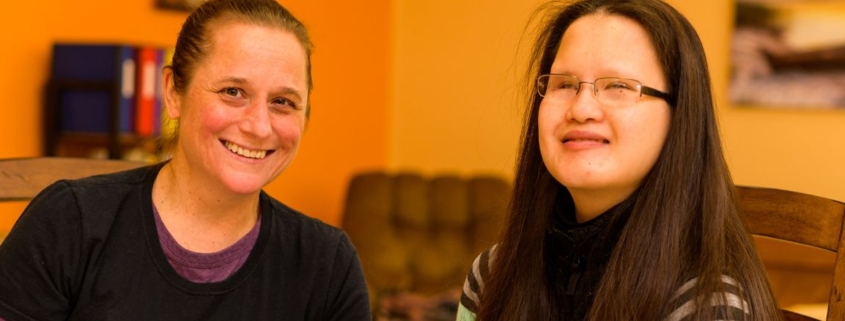People with intellectual and other developmental disabilities have inherent sexual feelings, needs and identities which must be affirmed, defended and respected. Sexuality must be acknowledged as part of the total context of human relationships. Informed consent in sexual expression protects the rights and dignity of the person. The presence of intellectual and other developmental disabilities regardless of severity, must not in itself, deny a person his or her right to sexual expression, justify involuntary sterilization, or cause denial of sterilization to those who choose it for themselves.
It is the Position of TheArc New York that:
- Disability has nothing to do with a person’s ability to love and be loved. Every person must have the opportunity to be in a loving and consensual relationship if they so choose.
- The presence of an intellectual or developmental disability, regardless of severity, does not, in itself, justify loss of rights related to sexuality. Every person has the right to exercise choices regarding sexual expression and social relationships. Informed consent in sexual expression protects the rights and dignity of the person.
- With respect to sexuality, people have a right to:
- Sexual expression of their choosing
- Individualized education and information to encourage informed decision-making. Education may include issues such as reproduction, marriage and family life, abstinence, safer sexual practices, sexual orientation, sexual abuse, gender identity, and sexually transmitted diseases. The education must be reflective of the person’s cultural, religious and moral values and of social responsibility.
- Education must be provided by persons who demonstrate a positive attitude towards the expression of sexuality in people who have I/DD, and who are trained to provide information in a non-judgmental manner. Such personnel must be willing and trained to offer accurate and unbiased information related to human sexuality.
- Protection from sexual harassment and from physical, sexual, and emotional abuse
- All people have the right within interpersonal relationships to:
- Develop friendships and emotional and sexual relationships where they can love and be loved, and begin and end a relationship as they choose
- Dignity and respect
- Privacy, confidentiality, and freedom of association
- With respect to the potential for having and raising children, people with intellectual or developmental disabilities have the right to:
- Education and information about having and raising children that is individualized to reflect each person’s unique ability to understand.
- Make their own decisions related to having and raising children with supports as necessary.
- Make their own decisions related to using birth control methods within the context of their personal or religious beliefs.
- Have control over their own bodies
- Be protected from sterilization solely because of their disability





